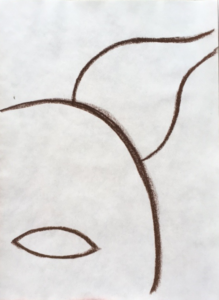 Imagine, for a moment, the imagination. Here is a list of some things that live there:
Imagine, for a moment, the imagination. Here is a list of some things that live there:
- The weather forecast
- That earworm song fragment you can’t shake.
- The entire planned and unplanned future, dragging its history behind it
- What the cat is thinking
- The taste of red licorice when you’re not eating it, and maybe even when you are
- Every reason for everything
- Everywhere you aren’t
- Alexander’s horned sphere
- Scenarios of worry
- Security
The coffee cup in front of me isn’t imaginary, but it needs my imagined history of drinking liquids from vessels in order to be more than a ceramic blob.
What about the cup’s atoms and molecules? My education tells me they are real—but much of what I learned in school has turned out to be imaginary. I can imagine taking the cup to a place where scientists with the right equipment could lead me through procedures for collecting and interpreting data to persuade me that the atoms and molecules of the coffee cup are there, but if I don’t actually take the cup to be tested, are its atoms and molecules real or imaginary?
What is the sound of a cup knocked off the table by the wind when nobody’s home?
What about your immune system? Is that imaginary? Auras? The little people I hear talking but you don’t?
Are all invisible things imaginary? Emotions, electromagnetism, and the whole underground part of the tree which some believe to be at least as massive as the part of the tree you can see? Are some things real and imaginary at the same time?
Maybe the imagination has categories—things that were once real, things that might be real someday, group hallucinations, things that never happened, things that never could. Where would you put Lady Godiva, Atlantis, and George Washington? Not to mention all those things your siblings said never happened. Even if you could work out some good categories, wouldn’t they be imaginary? Is anything about the imagination real?
The psychologist Thomas Moore wrote in Care of the Soul that moving from dissatisfaction towards satisfaction is driven not by changes in circumstance, but by changes in imagination. Because our ideas about who we are and what we are capable of are imaginary.
And the unimaginable. What kinds of things are those? Enjoying the company of people you are fighting with? The second-to-last last number before infinity? Slithy toves? Is it possible to not-imagine something once you speak its name?
Trying to get a handle on the imagination.
Imagine that—the imagination with a handle on it.